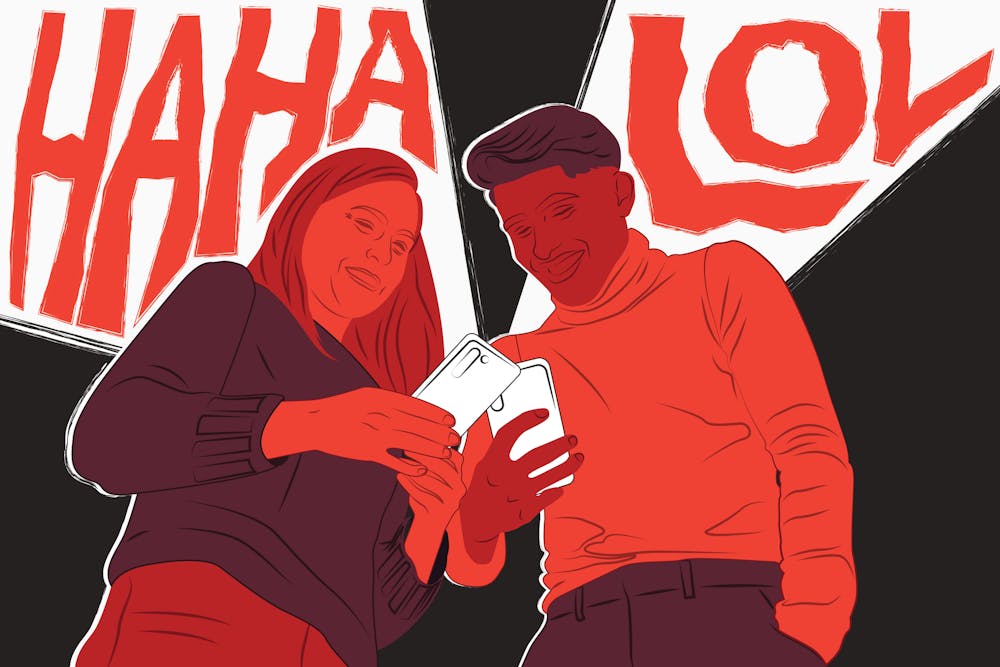Sean Combs allegedly abused and assaulted countless victims while running a sex trafficking enterprise that engaged in forced labor, coercion, exploitation, recording sex acts without permission, drugging victims, extreme violence and kidnapping.
Both statements have come to signify the same thing, but one probably triggered an urge to laugh. Comments under videos about Combs — a longtime music producer — are filled with calls to "free Diddy," requests to attend his parties and messages including “Diddy be praised! He gave experiences to all who were in his light. Oiled and willing were his patrons waiting for the gift of Diddy.”
Barely hours after discussions about the case began, it had already been sensationalized into TikTok audios and true crime conspiracy gossip shows. Like vultures to a corpse, the opportunity for new entertainment attracted hoards of wannabe comedians and screen-addicted children. The ability to take a horrific situation and immediately synthesize it into a comedy special is something truly unique to our generation, and something truly vile.
The terminology surrounding this case, the perpetrators and the absurdity, they equate to comedy for some of you. But allowing yourself to find humor in any part of a sex trafficking case is barring you from engaging empathetically with the people on the prosecuting side of the stand.
Sexual assault court proceedings have historically been dismissed in the justice system, especially since it’s supposed to be an approximation of public opinion of fair punishment. While it may seem like your actions don’t have any bearing on the legal process, the words you type and share carry more weight than you realize.
When a sexual assault victim testifies their experience, they are reliving one of the worst traumas known to humankind in front of strangers dozens of times, hoping for justice that often isn’t served. If someone thinks their experience will be made into a joke, they will be much less willing to come forward. If a jury member is desensitized because of our dismissive actions online, they will be much less likely to empathize with a testimony as deeply. By invalidating the severity of the victims’ experiences, you are inadvertently potentially impeding the prosecution of people like Combs.
In this situation, what kind of person is able to set up a camera and lighting, lip-sync to a popular TikTok audio with a rehearsed faux-shocked expression, add hashtags like #funny and #gossip and press post? The most striking parts of the federal documents filed against Combs have been reduced to jokes, like grown men dressing up as "Diddy baby oil," baby oil that was allegedly laced with date rape drugs to keep victims weak and unable to escape. The amount of jokes online have made people comfortable enough to turn a real case with over a hundred alleged victims into an inconsiderate conspiracy-filled dystopian phenomenon.
The most harmful part of these jokes is that they are not confined to a screen. Children’s sense of humor is built almost completely from internet culture, but they aren’t yet able to decipher its origins or depth. A generation that grows up joking about victims, many their own age, without pushback, is a circumstance to fear. What kind of monsters are we creating in our unwillingness to confront the lack of empathy they display?



